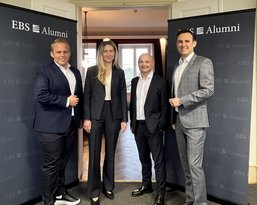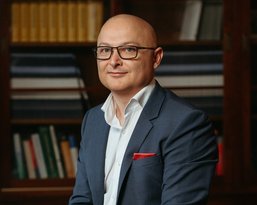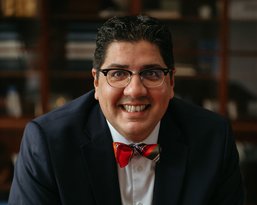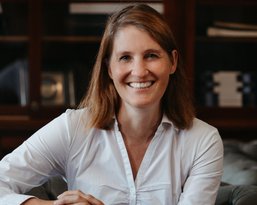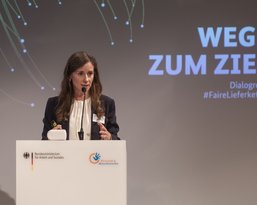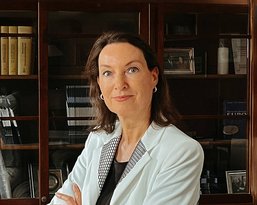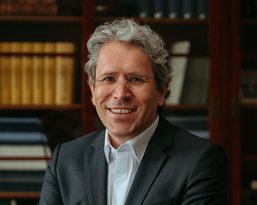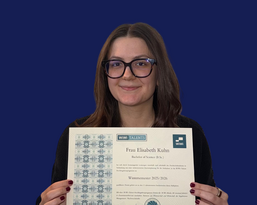
New professorship for digitisation law: Interview with Dr. Dr. Hanjo Hamann
Since the beginning of April, Dr. Dr. Hanjo Hamann strengthens the EBS Law School and holds the professorship for Digitisation Law. We interviewed him:
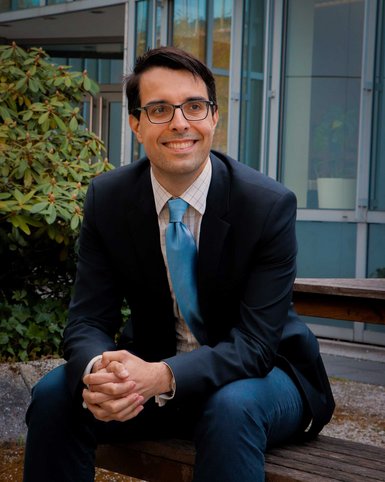
EBS: Welcome to EBS Universität! You took up the professorship of Digitisation Law in April. Would you like to introduce yourself briefly?
Hamann: I studied law in Heidelberg and Hamburg and, at the same time, attended psychology lectures. I was already interested in the digitisation aspects of law during my studies: I was involved as IT director of the European Law Students Association (ELSA) and considered, for example, the “law of the Internet-AGM”, in other words the digitisation of AGMs under company law. At the time, I wrote in a journal: “Only one question remains unanswered: what about the entirely virtual annual general meeting?” That was in 2006, but I had to wait for the answer until COVID brought us the first virtual general meetings in 2020. In the meantime, I had finished my studies, gained a doctorate in law and economics and a master’s degree in Silicon Valley. Digitisation has played a significant role in all stages of my career so far, and it has given me unexpected insights into neighbouring disciplines such as digital humanities.
EBS: Your research concentrates on the interface between law and economics. What are your thematic priorities?
Hamann: I discovered the point of intersection between law and economics during my doctoral studies at an interdisciplinary Max Planck Institute. (There I also met my now-again colleague Emanual Towfigh who has since published an excellent textbook on these issues.) For my doctoral thesis I examined what added value the insights into behavioural economics and empirical legal research could have for German corporate law. I later investigated more general supplementary questions using the methods of empirical and experimental microeconomics and summarised my findings in a doctoral thesis entitled Behavioural Second-Order Strategies”. Currently, I am also focusing on research in business administration and, together with a colleague, am planning an interdisciplinary conference on the interaction between marketing and retail research and the special law of obligations (contract law). In addition, my research interests include recent legal history, legislative theory, empirical legal research and legal corpus linguistics, and I am working on a book about the legal challenge of “abatement” in the special law of obligations.
EBS: Looking into the future: what challenges does jurisprudence have to be prepared for with regard to digitisation?
Hamann: To quote Günter Grass, that is “too far afield”. No one legal profession comes to mind that will not be impacted by digitisation. Requirements are changing in all fields of the legal profession - and with them the skills which will be required of future lawyers. Just yesterday, I was at a conference on “Teaching Digitisation in Law”, where judges, lawyers, and academics were discussing the many changes caused by digitisation. Of these, I’m particularly interested in the growing importance of new areas of law (for instance copyright) and their role in the accessibility of legal texts. After all, current IT applications such as machine learning and so-called artificial intelligence are above all: data-hungry. As lawyers we must look very carefully at what data is available for this and how it is used - otherwise the results of such processes are futile, but dangerous. Garbage in, garbage out, as the statisticians say. Apart from that, I am mainly interested in the potentials of digital didactics and the question of how we teach law students sufficient digital literacy to avoid such headlines as “Some Lawyers are Unacceptably Bad with Technology”. (This was the case about a week ago.)
EBS: You come from the Max Planck Institute for Research of Collective Goods in Bonn. What attracts you to research and teach at EBS?
Hamann: I worked or was affiliated at the MPI for exactly twelve years. It is an excellent and very inspiring environment for research. However, Max Planck Institutes don’t have students, so there is only very limited opportunity to teach. I have often taken on teaching assignments at state universities - for instance in Berlin (Freie Universität), Bonn, Gießen, Mannheim and abroad. But this was rather sporadic, I didn’t have the opportunity to develop a coherent teaching portfolio, to use a variety of lecture formats or to accompany students over a longer period of time and in diverse topics. EBSs offers me these opportunities and I very much want to contribute to the unique offer of sequenced teaching and the focus on digitisation.
EBS: What are you looking forward to most in your new position at EBS?
Hamann: The students. I have been working on legal didactics - the science of good teaching - for a long time and have planned some teaching formats for my courses that I am convinced will provide students with measurable and tangible added value that textbooks alone could not offer them. Moreover, EBS students are known in and beyond Wiesbaden for being more committed and motivated to participate than students at other universities. So these will be exciting discussions, I hope.
EBS: When you finished high school, what made you decide to study law?
Hamann: Strictly speaking, I wasn’t a high school graduate because I graduated from an international school. There, a great deal of homework was assigned in “essay” format, that is, as written assignments in with argumentative coherence, investigative curiosity and creative use of language were important. This academic remedial course was great fun and ultimately opened up two career paths for me. Of these two, however, the journalistic profession was too diffuse for me. And too hectic.
EBS: Last but not least: what motivates you in your private life?
Hamann: I do voluntary work for the Studienstiftung des Deutschen Volkes (German National Academic Foundation), which sponsored my studies, and, since my time as a student, I have been involved with children and young people - most recently in the international children’s charity Kiwanis, a so-called Service Club. I love to travel and indulge in water sports. In the country, on the other hand, I enjoy looking for traces of humour in law, write satirical commentaries - and computer programmes that make my life easier. What else? Ah yes: architecture, science fiction and my favourite font is Alegreya.
